- Home
- H. P. Lovecraft
Eldritch Tales Page 8
Eldritch Tales Read online
Page 8
‘On February 22, 1901, a marvellous new star was discovered by Dr Anderson, of Edinburgh, not very far from Algol. No star had been visible at that point before. Within twenty-four hours the stranger had become so bright that it outshone Capella. In a week or two it had visibly faded, and in the course of a few months it was hardly discernible with the naked eye.’
PSYCHOPOMPOS
I am He who howls in the night;
I am He who moans in the snow;
I am He who hath never seen light;
I am He who mounts from below.
My car is the car of Death;
My wings are the wings of dread;
My breath is the north wind’s breath;
My prey are the cold and the dead.
IN OLD AUVERGNE, when schools were poor and few,
And peasants fancy’d what they scarcely knew,
When lords and gentry shunn’d their monarch’s throne
For solitary castles of their own,
There dwelt a man of rank, whose fortress stood
In the hush’d twilight of a hoary wood.
De Blois his name; his lineage high and vast,
A proud memorial of an honour’d past;
But curious swains would whisper now and then
That Sieur De Blois was not as other men.
In person dark and lean, with glossy hair,
And gleaming teeth that he would often bare,
With piercing eye, and stealthy roving glance,
And tongue that clipt the soft, sweet speech of France;
The Sieur was little lov’d and seldom seen,
So close he kept within his own demesne.
The castle servants, few, discreet, and old,
Full many a tale of strangeness might have told;
But bow’d with years, they rarely left the door
Wherein their sires and grandsires serv’d before.
Thus gossip rose, as gossip rises best,
When mystery imparts a keener zest;
Seclusion oft the poison tongue attracts,
And scandal prospers on a dearth of facts.
’Twas said, the Sieur had more than once been spy’d
Alone at midnight by the river’s side,
With aspect so uncouth, and gaze so strange,
That rustics cross’d themselves to see the change;
Yet none, when press’d, could clearly say or know
Just what it was, or why they trembled so.
De Blois, as rumour whisper’d, fear’d to pray,
Nor us’d his chapel on the Sabbath day;
Howe’er this may have been, ’twas known at least
His household had no chaplain, monk, or priest.
But if the Master liv’d in dubious fame,
Twice fear’d and hated was his noble Dame;
As dark as he, in features wild and proud,
And with a weird supernal grace endow’d,
The haughty mistress scorn’d the rural train
Who sought to learn her source, but sought in vain.
Old women call’d her eyes too bright by half,
And nervous children shiver’d at her laugh;
Richard, the dwarf (whose word had little weight),
Vow’d she was like a serpent in her gait,
Whilst ancient Pierre (the aged often err)
Laid all her husband’s mystery to her.
Still more absurd were those odd mutter’d things
That calumny to curious list’ners brings;
Those subtle slanders, told with downcast face,
And muffled voice . . . those tales no man may trace;
Tales that the faith of old wives can command,
Tho’ always heard at sixth or seventh hand.
Thus village legend darkly would imply
That Dame De Blois possess’d an evil eye;
Or going further, furtively suggest
A lurking spark of sorcery in her breast;
Old Mère Allard (herself half witch) once said
The lady’s glance work’d strangely on the dead.
So liv’d the pair, like many another two
That shun the crowd, and shrink from public view.
They scorn’d the doubts by ev’ry peasant shown,
And ask’d but one thing . . . to be let alone!
’Twas Candlemas, the dreariest time of year,
With fall long gone, and spring too far to cheer,
When little Jean, the bailiff’s son and heir,
Fell sick and threw the doctors in despair.
A child so stout and strong that few would think
An hour might carry him to death’s dark brink,
Yet pale he lay, though hidden was the cause,
And Galens search’d in vain through Nature’s laws.
But stricken sadness could not quite suppress
The roving thought, or wrinkled grandam’s guess:
Though spoke by stealth, ’twas known to half a score
That Dame De Blois rode by the day before;
She had (they said) with glances weird and wild
Paus’d by the gate to view the prattling child,
Nor did they like the smile which seem’d to trace
New lines of evil on her proud, dark face.
These things they whisper’d, when the mother’s cry
Told of the end . . . the gentle soul gone by;
In genuine grief the kindly watcher wept,
Whilst the lov’d babe with saints and angels slept.
The village priest his simple rites went through,
And good Michel nail’d up the box of yew;
Around the corpse the holy candles burn’d,
The mourners sighed, the parents dumbly yearn’d.
Then one by one each sought his humble bed,
And left the lonely mother with her dead.
Late in the night it was, when o’er the vale
The storm-king swept with pandemoniac gale;
Deep pil’d the cruel snow, yet strange to tell,
The lightning sputter’d while the white flakes fell;
A hideous presence seem’d abroad to steal,
And terror sounded in the thunder’s peal.
Within the house of grief the tapers glow’d
Whilst the poor mother bow’d beneath her load;
Her salty eyes too tired now to weep,
Too pain’d to see, too sad to close in sleep.
The clock struck three, above the tempest heard,
When something near the lifeless infant stirr’d;
Some slipp’ry thing, that flopp’d in awkward way,
And climb’d the table where the coffin lay.
With scaly convolutions strove to find
The cold, still clay that death had left behind.
The nodding mother hears . . . starts broad awake . . .
Empower’d to reason, yet too stunn’d to shake;
The pois’nous thing she sees, and nimbly foils
The ghoulish purpose of the quiv’ring coils:
With ready ax the serpent’s head she cleaves,
And thrills with savage triumph whilst she grieves.
The injur’d reptile hissing glides from sight,
And hides its cloven carcass in the night.
The weeks slipp’d by, and gossip’s tongue began
To call the Sieur De Blois an alter’d man;
With curious mien he oft would pace along
The village street, and eye the gaping throng.
Yet whilst he showed himself as ne’er before,
His wild-eyed lady was observ’d no more.
In course of time, ’twas scarce thought odd or ill
That he his ears with village lore should fill;
Nor was the town with special rumour rife
When he sought out the bailiff and his wife:
Their tale of sorrow, with its ghastly end,
Was told, indeed, by ev’ry wond
’ring friend.
The Sieur heard all, and low’ring rode away,
Nor was he seen again for many a day.
When vernal sunshine shed its cheering glow,
And genial zephyrs blew away the snow,
To frighten’d swains a horror was reveal’d
In the damp herbage of a melting field.
There (half preserved by winter’s frigid bed)
Lay the dark Dame De Blois, untimely dead;
By some assassin’s stroke most foully slain,
Her shapely brow and temples cleft in twain.
Reluctant hands the dismal burden bore
To the stone arches of the husband’s door,
Where silent serfs the ghastly thing receiv’d,
Trembling with fright, but less amaz’d than griev’d;
The Sieur his dame beheld with blazing eyes,
And shook with anger, more than with surprise.
(At least ’tis thus the stupid peasants told
Their wide-mouth’d wives when they the tale unroll’d.)
The village wonder’d why De Blois had kept
His spouse’s loss unmention’d and unwept,
Nor were there lacking sland’rous tongues to claim
That the dark master was himself to blame.
But village talk could scarcely hope to solve
A crime so deep, and thus the months revolve:
The rural train repeat the gruesome tale,
And gape and marvel more than they bewail.
Swift flew the sun, and winter once again
With icy talons gripp’d the frigid plain.
December brought its store of Christmas cheer,
And grateful peasants hail’d the op’ning year;
But by the hearth as Candlemas drew nigh,
The whisp’ring ancients spoke of things gone by.
Few had forgot the dark demoniac lore
Of things that came the Candlemas before,
And many a crone intently ey’d the house
Where dwelt the sadden’d bailiff and his spouse.
At last the day arriv’d, the sky o’erspread
With dark’ning messengers and clouds of lead;
Each neighb’ring groveÆolian warnings sigh’d,
And thick’ning terrors broadcast seem’d to bide.
The good folk, though they knew not why, would run
Swift past the bailiff’s door, the scene to shun;
Within the house the grieving couple wept,
And mourn’d the child who now for ever slept.
On rush’d the dusk in doubly hideous form,
Borne on the pinions of the gath’ring storm;
Unusual murmurs fill’d the rainless wind,
And hast’ning travellers fear’d to glance behind.
Mad o’er the hills the demon tempest tore;
The rising river lash’d the troubled shore;
Black through the night the awful storm-god prowl’d,
And froze the list’ners’ life-blood as he howled;
Gigantic trees like supple rushes sway’d,
Whilst for his home the trembling cotter pray’d.
Now falls a sudden lull amidst the gale;
With less’ning force the circling currents wail;
Far down the stream that laves the neighb’ring mead
Burst a new ululation, wildly key’d;
The peasant train a frantic mien assume,
And huddle closer in the spectral gloom:
To each strain’d ear the truth too well is known,
For that dread sound can come from wolves alone!
The rustics close attend, when ere they think,
A lupine army swarms the river’s brink;
From out the waters leap a howling train
That rend the air, and scatter o’er the plain:
With flaming orbs the frothing creatures fly,
And chant with hellish voice their hungry cry.
First of the pack a mighty monster leaps
With fearless tread, and martial order keeps;
Th’ attendant wolves his yelping tones obey,
And form in columns for the coming fray:
No frighten’d swain they harm, but silent bound
With a fix’d purpose o’er the frozen ground.
Straight course the monsters through the village street,
Unholy vigour in their flying feet;
Through half-shut blinds the shelter’d peasants peer,
And wax in wonder as they lose in fear.
Th’ excited pack at last their goal perceive,
And the vex’d air with deaf’ning clamour cleave;
The churls, astonish’d, watch th’ unnatural herd
Flock round a cottage at the leader’s word:
Quick spreads the fearsome fact, by rumour blown,
That the doom’d cottage is the bailiff’s own!
Round and around the howling daemons glide,
Whilst the fierce leader scales the vine-clad side;
The frantic wind its horrid wail renews,
And mutters madly through the lifeless yews.
In the frail house the bailiff calmly waits
The rav’ning horde, and trusts th’ impartial Fates,
But the wan wife revives with curious mien
Another monster and an older scene;
Amidst th’ increasing wind that rocks the walls,
The dame to him the serpent’s deed recalls:
Then as a nameless thought fills both their minds,
The bare-fang’d leader crashes through the blinds.
Across the room, with murd’rous fury rife,
Leaps the mad wolf, and seizes on the wife;
With strange intent he drags his shrieking prey
Close to the spot where once the coffin lay.
Wilder and wilder roars the mounting gale
That sweeps the hills and hurtles through the vale;
The ill-made cottage shakes, the pack without
Dance with new fury in demoniac rout.
Quick as his thought, the valiant bailiff stands
Above the wolf, a weapon in his hands;
The ready ax that served a year before,
Now serves as well to slay one monster more.
The creature drops inert, with shatter’d head,
Full on the floor, and silent as the dead;
The rescu’d wife recalls the dire alarms,
And faints from terror in her husband’s arms.
But as he holds her, all the cottage quakes,
And with full force the titan tempest breaks:
Down crash the walls, and o’er their shrinking forms
Burst the mad revels of the storm of storms.
Th’ encircling wolves advance with ghastly pace,
Hunger and murder in each gleaming face,
But as they close, from out the hideous night
Flashes a bolt of unexpected light:
The vivid scene to ev’ry eye appears,
And peasants shiver with returning fears.
Above the wreck the scatheless chimney stays,
Its outline glimm’ring in the fitful rays,
Whilst o’er the hearth still hangs the household shrine,
The Saviour’s image and the Cross divine!
Round the blest spot a lambent radiance glows,
And shields the cotters from their stealthy foes:
Each monstrous creature marks the wondrous glare,
Drops, fades, and vanishes in empty air!
The village train with startled eyes adore,
And count their beads in rev’rence o’er and o’er.
Now fades the light, and dies the raging blast,
The hour of dread and reign of horror past.
Pallid and bruis’d, from out his toppled walls
The panting bailiff with his good wife crawls:
Kind hands attend them, whilst o’er all the town
> A strange sweet peace of spirit settles down.
Wonder and fear are still’d in soothing sleep,
As through the breaking clouds the moon rays peep.
Here paus’d the prattling grandam in her speech,
Confus’d with age, the tale half out of reach;
The list’ning guest, impatient for a clue,
Fears ’tis not one tale, but a blend of two;
He fain would know how far’d the widow’d lord
Whose eerie ways th’ initial theme afford,
And marvels that the crone so quick should slight
His fate, to babble of the wolf-rack’d night.
The old wife, press’d, for greater clearness strives,
Nods wisely, and her scatter’d wits revives;
Yet strangely lingers on her latter tale
Of wolf and bailiff, miracle and gale.
When (quoth the crone) the dawn’s bright radiance bath’d
Th’ eventful scene, so late in terror swath’d,
The chatt’ring churls that sought the ruin’d cot
Found a new marvel in the gruesome spot.
From fallen walls a trail of gory red,
As of the stricken wolf, erratic led;
O’er road and mead the new-dript crimson wound,
Till lost amidst the neighb’ring swampy ground:
With wonder unappeas’d the peasants burn’d,
For what the quicksand takes is ne’er return’d.
Once more the grandam, with a knowing eye,
Stops in her tale, to watch a hawk soar by;
The weary list’ner, baffled, seeks anew
For some plain statement, or enlight’ning clue.
Th’ indulgent crone attends the puzzled plea,
Yet strangely mutters o’er the mystery.
The Sieur? Ah, yes . . . that morning all in vain

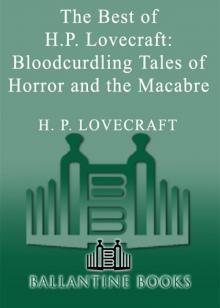 The Best of H.P. Lovecraft
The Best of H.P. Lovecraft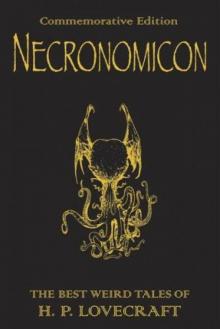 The Definitive H.P. Lovecraft: 67 Tales Of Horror In One Volume
The Definitive H.P. Lovecraft: 67 Tales Of Horror In One Volume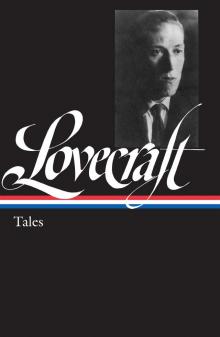 The Complete Works of H.P. Lovecraft
The Complete Works of H.P. Lovecraft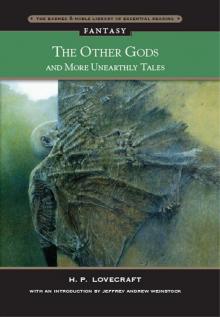 Other Gods and More Unearthly Tales
Other Gods and More Unearthly Tales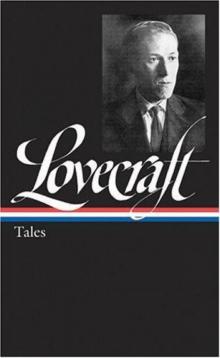 Lovecraft's Fiction Volume I, 1905-1925
Lovecraft's Fiction Volume I, 1905-1925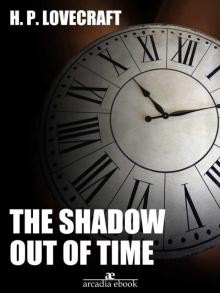 The Shadow Out of Time
The Shadow Out of Time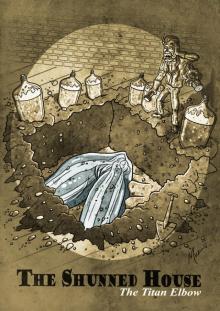 The Shunned House
The Shunned House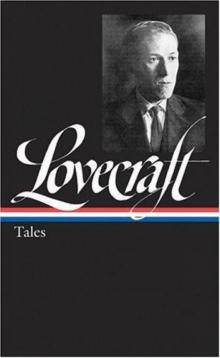 Lovecraft's Fiction Volume II, 1926-1928
Lovecraft's Fiction Volume II, 1926-1928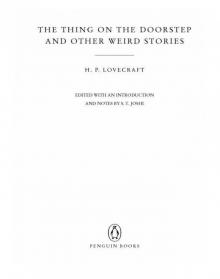 The Thing on the Doorstep and Other Weird Stories
The Thing on the Doorstep and Other Weird Stories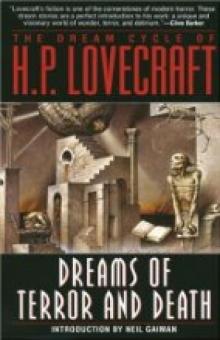 Dream Cycle of H. P. Lovecraft: Dreams of Terror and Death
Dream Cycle of H. P. Lovecraft: Dreams of Terror and Death Great Tales of Horror
Great Tales of Horror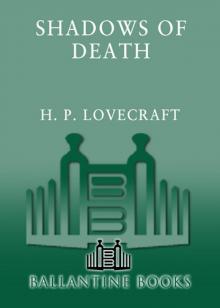 Shadows of Death
Shadows of Death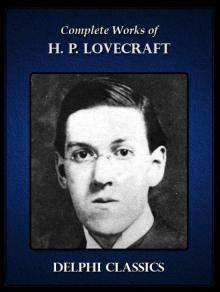 Delphi Complete Works of H. P. Lovecraft (Illustrated)
Delphi Complete Works of H. P. Lovecraft (Illustrated)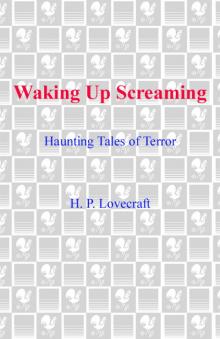 Waking Up Screaming: Haunting Tales of Terror
Waking Up Screaming: Haunting Tales of Terror H.P. Lovecraft Goes to the Movies
H.P. Lovecraft Goes to the Movies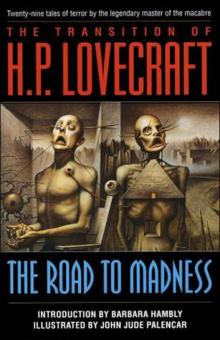 The Road to Madness
The Road to Madness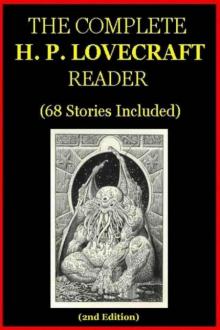 The Complete H.P. Lovecraft Reader (68 Stories)
The Complete H.P. Lovecraft Reader (68 Stories)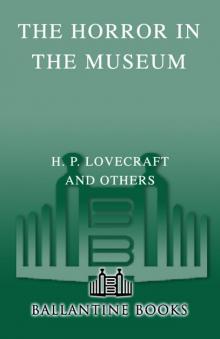 The Horror in the Museum
The Horror in the Museum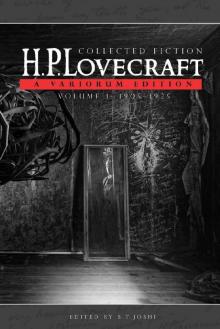 Collected Fiction Volume 1 (1905-1925): A Variorum Edition
Collected Fiction Volume 1 (1905-1925): A Variorum Edition Lovecrafts_Fiction, vol.I_1905-1925
Lovecrafts_Fiction, vol.I_1905-1925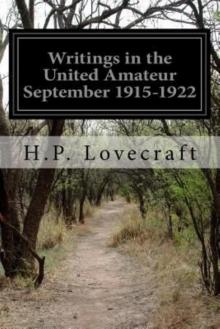 Writings in the United Amateur, 1915-1922
Writings in the United Amateur, 1915-1922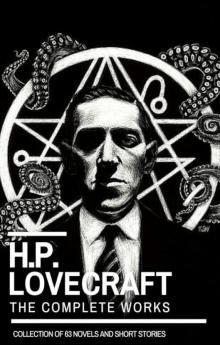 H.P. Lovecraft: The Complete Works
H.P. Lovecraft: The Complete Works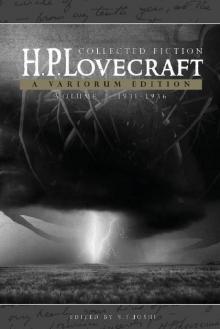 Collected Fiction Volume 3 (1931-1936): A Variorum Edition
Collected Fiction Volume 3 (1931-1936): A Variorum Edition H.P. Lovecraft: The Complete Fiction
H.P. Lovecraft: The Complete Fiction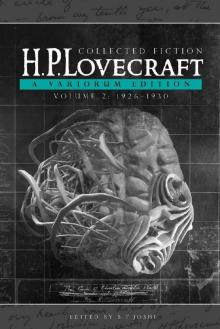 Collected Fiction Volume 2 (1926-1930): A Variorum Edition
Collected Fiction Volume 2 (1926-1930): A Variorum Edition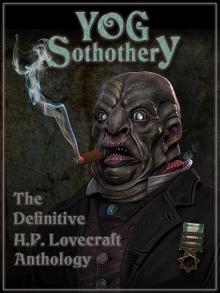 Yog Sothothery - The Definitive H.P. Lovecraft Anthology
Yog Sothothery - The Definitive H.P. Lovecraft Anthology The Complete H.P. Lovecraft Collection (Xist Classics)
The Complete H.P. Lovecraft Collection (Xist Classics)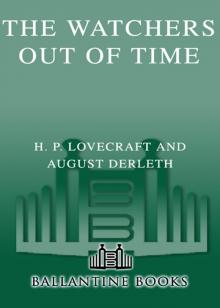 The Watchers Out of Time
The Watchers Out of Time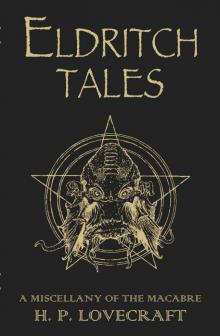 Eldritch Tales
Eldritch Tales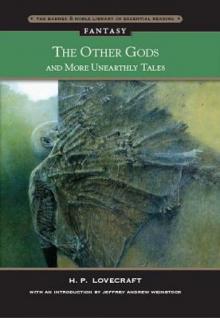 The Other Gods And More Unearthly Tales
The Other Gods And More Unearthly Tales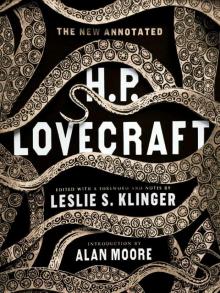 The New Annotated H. P. Lovecraft
The New Annotated H. P. Lovecraft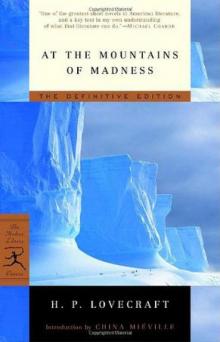 At the mountains of madness
At the mountains of madness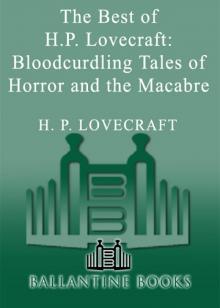 Bloodcurdling Tales of Horror and the Macabre
Bloodcurdling Tales of Horror and the Macabre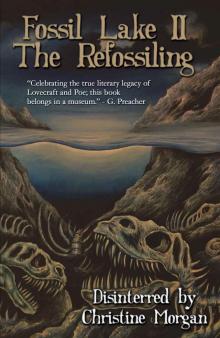 Fossil Lake II: The Refossiling
Fossil Lake II: The Refossiling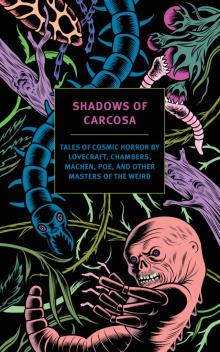 Shadows of Carcosa: Tales of Cosmic Horror by Lovecraft, Chambers, Machen, Poe, and Other Masters of the Weird
Shadows of Carcosa: Tales of Cosmic Horror by Lovecraft, Chambers, Machen, Poe, and Other Masters of the Weird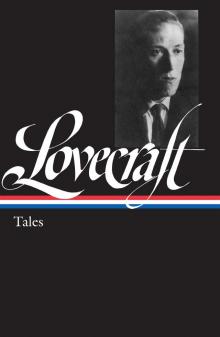 H. P. Lovecraft
H. P. Lovecraft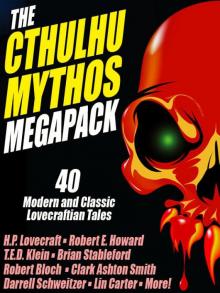 The Cthulhu Mythos Megapack
The Cthulhu Mythos Megapack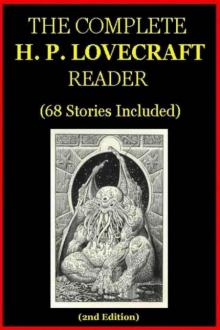 The Complete H. P. Lovecraft Reader (2nd Edition)
The Complete H. P. Lovecraft Reader (2nd Edition) The Complete Fiction
The Complete Fiction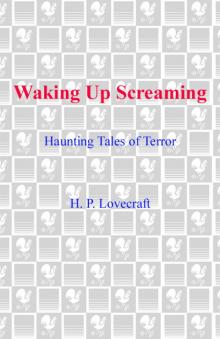 Waking Up Screaming
Waking Up Screaming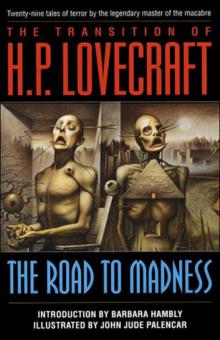 Transition of H. P. Lovecraft
Transition of H. P. Lovecraft![[1935] The Shadow Out of Time Read online](http://i1.bookreadfree.com/i2/04/12/1935_the_shadow_out_of_time_preview.jpg) [1935] The Shadow Out of Time
[1935] The Shadow Out of Time The Horror Megapack
The Horror Megapack